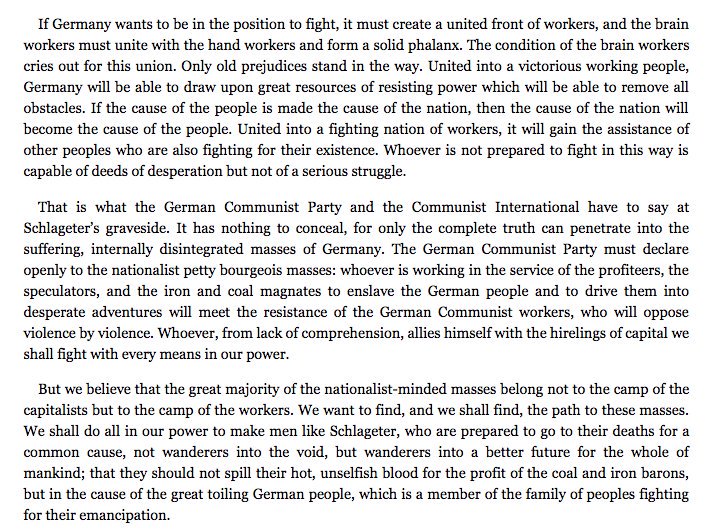libcom.org/library/crisis…
libcom.org/history/sparta…
An attempt to create a right/left alliance with German Nationalists.
And geopolitically, to normalise relations between Weimar and the USSR as a bulwark against France and England.
marxists.org/archive/radek/…

libcom.org/library/open-l…









